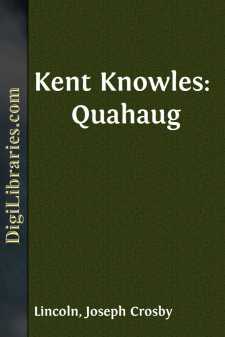Categories
- Antiques & Collectibles 13
- Architecture 36
- Art 48
- Bibles 22
- Biography & Autobiography 813
- Body, Mind & Spirit 142
- Business & Economics 28
- Children's Books 17
- Children's Fiction 14
- Computers 4
- Cooking 94
- Crafts & Hobbies 4
- Drama 346
- Education 46
- Family & Relationships 57
- Fiction 11829
- Games 19
- Gardening 17
- Health & Fitness 34
- History 1377
- House & Home 1
- Humor 147
- Juvenile Fiction 1873
- Juvenile Nonfiction 202
- Language Arts & Disciplines 88
- Law 16
- Literary Collections 686
- Literary Criticism 179
- Mathematics 13
- Medical 41
- Music 40
- Nature 179
- Non-Classifiable 1768
- Performing Arts 7
- Periodicals 1453
- Philosophy 64
- Photography 2
- Poetry 896
- Political Science 203
- Psychology 42
- Reference 154
- Religion 513
- Science 126
- Self-Help 84
- Social Science 81
- Sports & Recreation 34
- Study Aids 3
- Technology & Engineering 59
- Transportation 23
- Travel 463
- True Crime 29
The Portygee
Categories:
Description:
Excerpt
CHAPTER I
Overhead the clouds cloaked the sky; a ragged cloak it was, and, here and there, a star shone through a hole, to be obscured almost instantly as more cloud tatters were hurled across the rent. The pines threshed on the hill tops. The bare branches of the wild-cherry and silverleaf trees scraped and rattled and tossed. And the wind, the raw, chilling December wind, driven in, wet and salty, from the sea, tore over the dunes and brown uplands and across the frozen salt-meadows, screamed through the telegraph wires, and made the platform of the dismal South Harniss railway station the lonesomest, coldest, darkest and most miserable spot on the face of the earth.
At least that was the opinion of the seventeen-year-old boy whom the down train—on time for once and a wonder—had just deposited upon that platform. He would not have discounted the statement one iota. The South Harniss station platform WAS the most miserable spot on earth and he was the most miserable human being upon it. And this last was probably true, for there were but three other humans upon that platform and, judging by externals, they seemed happy enough. One was the station agent, who was just entering the building preparatory to locking up for the night, and the others were Jim Young, driver of the "depot wagon," and Doctor Holliday, the South Harniss "homeopath," who had been up to a Boston hospital with a patient and was returning home. Jim was whistling "Silver Bells," a tune much in vogue the previous summer, and Doctor Holliday was puffing at a cigar and knocking his feet together to keep them warm while waiting to get into the depot wagon. These were the only people in sight and they were paying no attention whatever to the lonely figure at the other end of the platform.
The boy looked about him. The station, with its sickly yellow gleam of kerosene lamp behind its dingy windowpane, was apparently the only inhabited spot in a barren wilderness. At the edge of the platform civilization seemed to end and beyond was nothing but a black earth and a black sky, tossing trees and howling wind, and cold—raw, damp, penetrating cold. Compared with this even the stuffy plush seats and smelly warmth of the car he had just left appeared temptingly homelike and luxurious. All the way down from the city he had sneered inwardly at a one-horse railroad which ran no Pullmans on its Cape branch in winter time. Now he forgot his longing for mahogany veneer and individual chairs and would gladly have boarded a freight car, provided there were in it a lamp and a stove.
The light in the station was extinguished and the agent came out with a jingling bunch of keys and locked the door. "Good-night, Jim," he shouted, and walked off into the blackness. Jim responded with a "good-night" of his own and climbed aboard the wagon, into the dark interior of which the doctor had preceded him. The boy at the other end of the platform began to be really alarmed. It looked as if all living things were abandoning him and he was to be left marooned, to starve or freeze, provided he was not blown away first....












